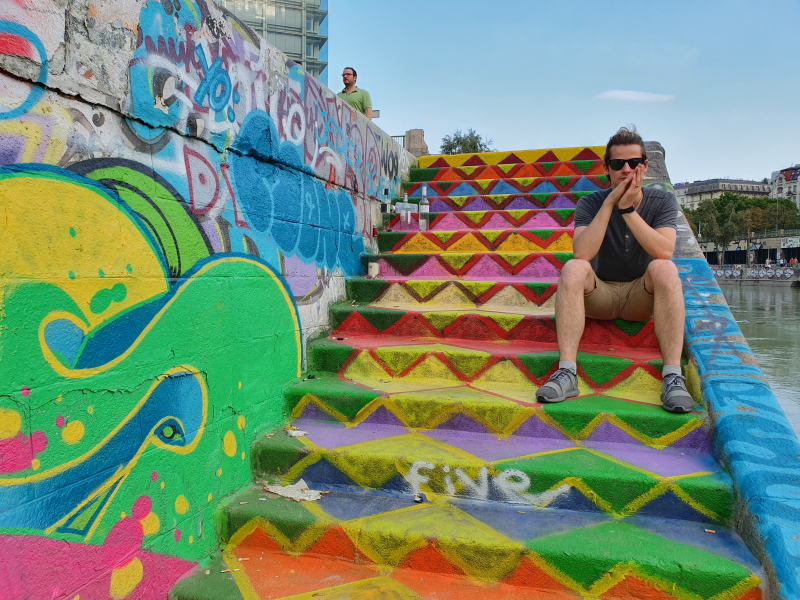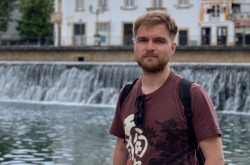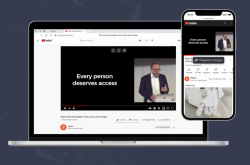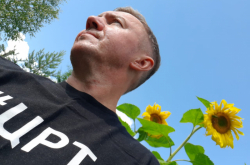“I wanted to pursue science, but life decided otherwise”
Why did you choose to study at ITMO?
When I was in grade ten, my parents asked me what I liked. Even then, it was computers. After that I started doing some research on the best place to study programming. I had several universities in mind, but in the end I opted for ITMO University’s Department of Computer Technologies. After I’d decided on a place, I started to actively participate in academic competitions and, as a result, enrolled without any exams.
What do you remember most from your student years?
Above all, people. For example my lecturers, such as Yan Malakhovski, Anton Kovalev, Andrew Stankevich, Konstantin Kokhas. And, undoubtedly, the fact that I learned to quickly process information and think.
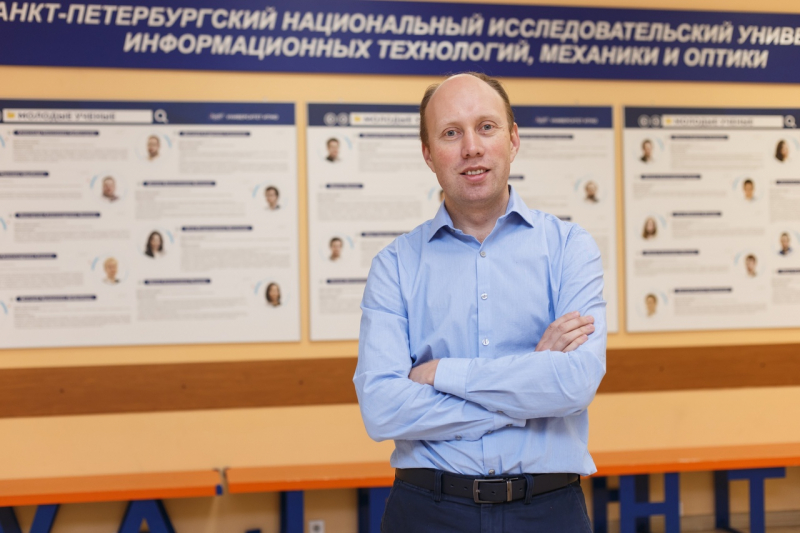
When did you start working?
At the end of the second year of my Bachelor’s, I was invited to join a project that I found rather interesting and so I did just that. But, jumping ahead, I’d say straight away that it’s best not to work during your studies. In the case of ITMO’s Department of Computer Technologies at least, because there’s a risk that you’ll miss out on some important information it’d be difficult to catch up on later. In my opinion, the ideal strategy is to study during the semester and then go on professional internships in the summer.
Did you go somewhere?
No, I didn’t have the opportunity, but many of my friends and groupmates did. And it’s wonderful.
If you were working since your Bachelor’s and everything was going smoothly, why did you decide to go on to do a Master’s degree? Why didn’t you continue focusing on your career?
Firstly, my Master’s degree wasn’t as hard as my Bachelor’s one, so I was able to combine studies and work without any problems. Secondly, I know that many enroll in a Master’s to obtain a more prestigious position at work. A Master’s diploma can be one of the employer’s requirements. But even at the start of my Master’s studies, I had an understanding that I’d be working for myself, and even now, when I’m hiring specialists to join my company, I never look at their degree. Personally, I went into Master’s studies for myself and it’s with the same goal that I want to get a PhD degree.
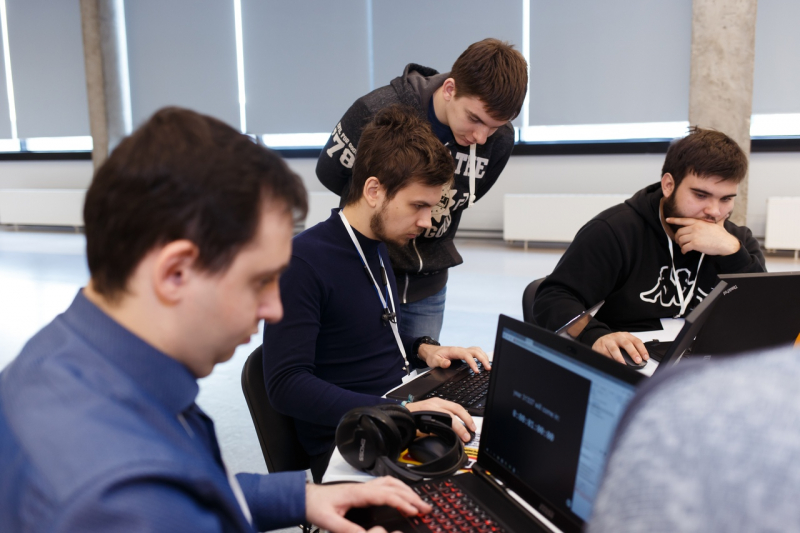
Where did you work during your Master’s?
I left the project I was working in during my Bachelor’s back in the third year, when I realized that I wanted to pursue science and all things related to mathematical logic, formal calculations and category theories. This was a clear decision on my part, but life decided otherwise, there was a need for me to work more actively and earn money.
After my fourth year at uni, a friend and I launched our own project Serokell. Now it’s a company with 60 members of staff working from all over the world. And I’m genuinely glad that nowadays people who are facing the same choice I did, being torn apart between science and making a living, can now work at the Computer Technologies lab. Here students, starting from their fourth year, are doing research and getting paid for it. Back in the day, this initiative was proposed by Anatoly Shalyto (a professor at ITMO’s Information Technologies and Programming Faculty – Ed. note), and today it’s supported and sponsored by major companies. Their leadership understands that research is needed and that it needs to pay well, otherwise it would be impossible for many to do it.
Especially when there’s this temptation to leave for the industry when juniors get good money.
This is true. And more often than not, these are very smart people. Of course, there are many interesting projects in the industry, but as a general rule programmers face a lot of monotonous tasks. Meanwhile, science is always something unexpected.
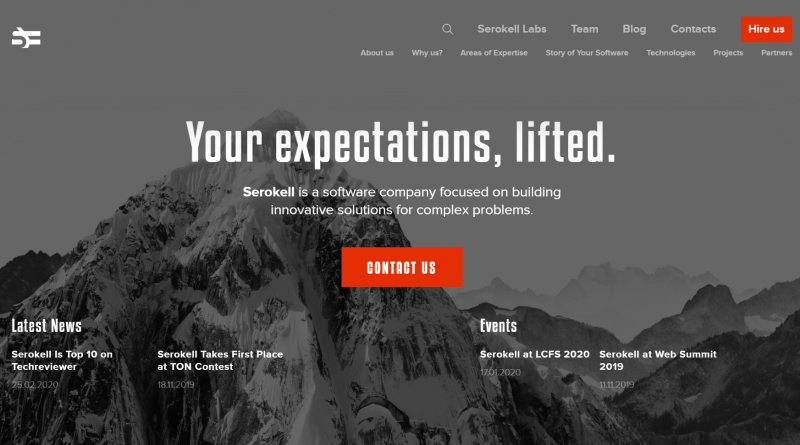
Serokell: a company without an office
How did you start working for yourself?
There were several factors that influenced this: I couldn’t work in an office, didn’t want to work for someone else, and really loved the programming language Haskell. I couldn’t find any remote work in this language, though. Then, one day, I was talking with an acquaintance from Riga and we decided: you have a project, I have a project, we’re going to join forces and split the profits in half. This is how it went. Two to three months later, we were already hiring our first employee.
Where did your projects come from?
The first two years we were working on a word-of-mouth basis, and then we created a marketing department which now focuses on this aspect. Now we have 60 people, and we work from different cities and countries remotely, with the company itself registered in Estonia.
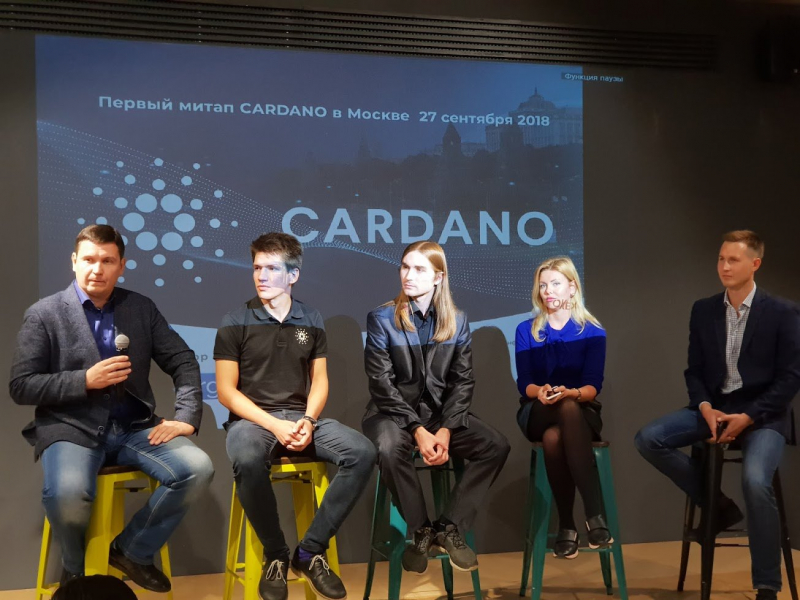
Why there?
From the get-go, we had an understanding that we would work with international clients, and having a legal entity in Europe makes this easier to organize. Plus, this also makes the process of hiring people from all over the world more convenient.
Is it difficult to register a business in Europe?
Very simple. Estonia allows you to apply for an electronic citizenship: you fill out a questionnaire, pay 100 euros, they review it, and if everything is okay, you’ll receive an identification card at the consulate that can be inserted into your computer like an electronic key. You can do all sorts of things online in Estonia: apply for any documents, any reports, we even registered the company online.
What does your company specialize in?
We’re an R&D company providing turnkey solutions. People come to us to have a specific problem solved. We try to take on tasks specifically from the field of computer science, though: we don’t just make websites but choose something related to algorithms, distributed systems or machine learning. By the way, last spring we joined forces with ITMO and opened a laboratory in the field of machine learning.
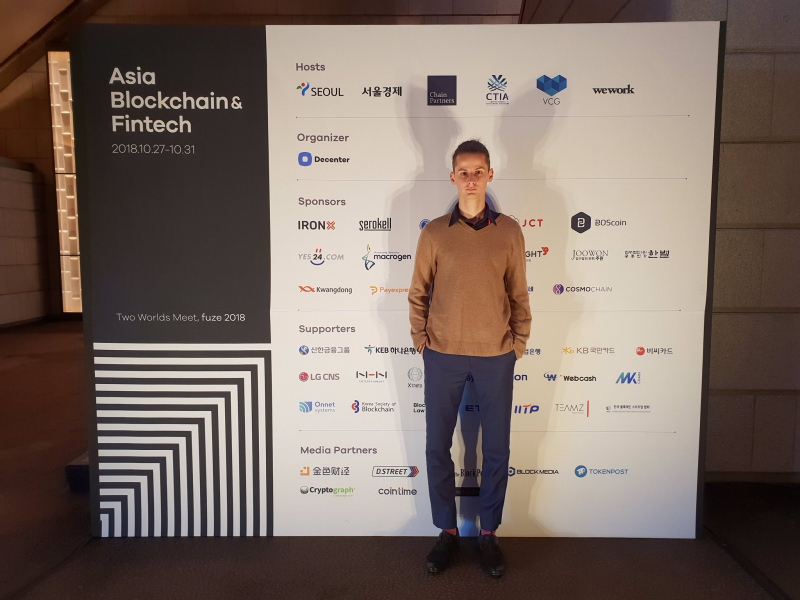
Why are you interested in continuing your collaboration with the university?
I wanted to be a scientist, and this hasn’t changed. At our company, we try to do projects that will be well-respected in the engineering and scientific field, not just for money’s sake. And now that we’ve grown, I realized that I want to help people who altruistically decided to work in science. So for a long time now, we have been sponsoring the Computer Technologies laboratory alongside such companies as Yandex, Mail.ru Group, and Tinkoff.
You’ve mentioned that you focus on unconventional and complex tasks – is it difficult to find demand for such tasks among clients?
Initially, we were lucky, people were approaching us through the grapevine, but at some point this stopped. For the company, this was a serious turning point. But now we have a marketing department and business development unit. They deal with attracting attention to the company and directly search for clients, partners and areas of development.
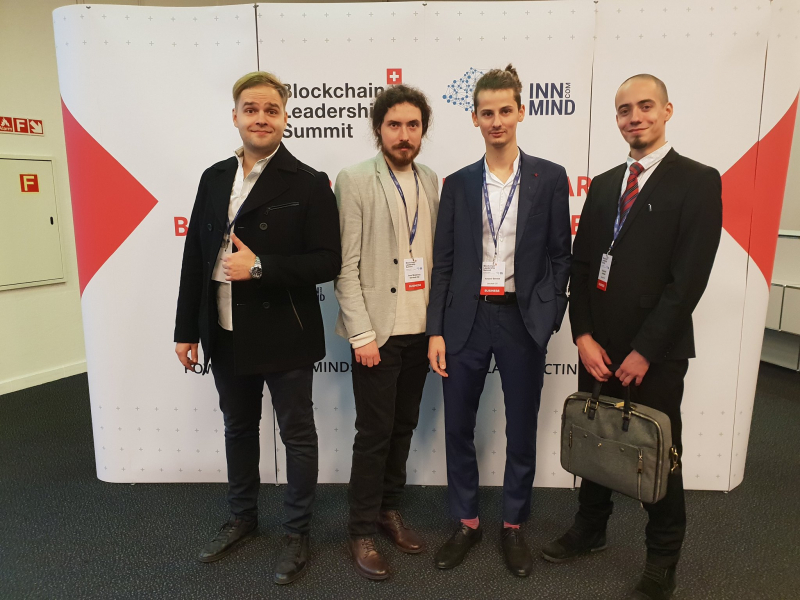
“Main question to an employee is whether they’re a fast learner”
Did you decide from the start that you would work remotely and have an international team?
Yes, the company’s co-founder is from Riga. We got acquainted with each other online, started working together, and met in person only three months after that. So we’ve been aiming at these principles from the very start: working in an international team out of the office, communicating in English, using clear-cut processes, because there are lots of people, all living in different cities and timezones. While we were gradually building a team, there weren’t any problems. They started arising when we went through a drastic increase from 10 to 30 people. But at that point we just came to the conclusion that it was time to formalize the processes so that the work wouldn’t turn into a hullabaloo.
How did you assemble the team?
The first two years, people would learn of us from somewhere, write and join the project. Some of the staff I had met earlier at ITMO. Since 2015, I’ve been teaching functional programming at the university, this is a subject that we use in our company’s work, so at the end of the course we’d invite the best students to join us. This is a great way to find good and capable employees, since you haven’t just spotted these people on the internet but have been communicating and interacting with them throughout the year and know what they’re like.
What are you thinking about when you’re hiring a new employee?
One simple criterion: whether they’re able to learn fast.
Why so?
It doesn’t matter to me whether you know some technologies by heart or not: what’s important is that programming and the entire field around you is changing by the day, today you have to use one library, tomorrow you’ll have to use another. It’s good if a person knows their way around one library, but it’s much more of a priority if they’re able to learn another one in a week. If my employees and I weren’t able to keep up to date and stay current, the current would wash us under.
Is it hard to work remotely? Do you and your employees ever lose connection to each other, that team feeling?
This is the biggest and most complex task that we face. It’s a huge problem if a person goes out of step, if they grow distant. We try to maintain a certain team spirit, communicate with each other. At the end of last year, we won a Telegram contest, and we’ll spend the prize money to get all the staff together in Cyprus. Apart from that, from time to time we attend conferences, hackathons, go on meetings with clients: we try to send on these events the people who haven’t met each other yet.
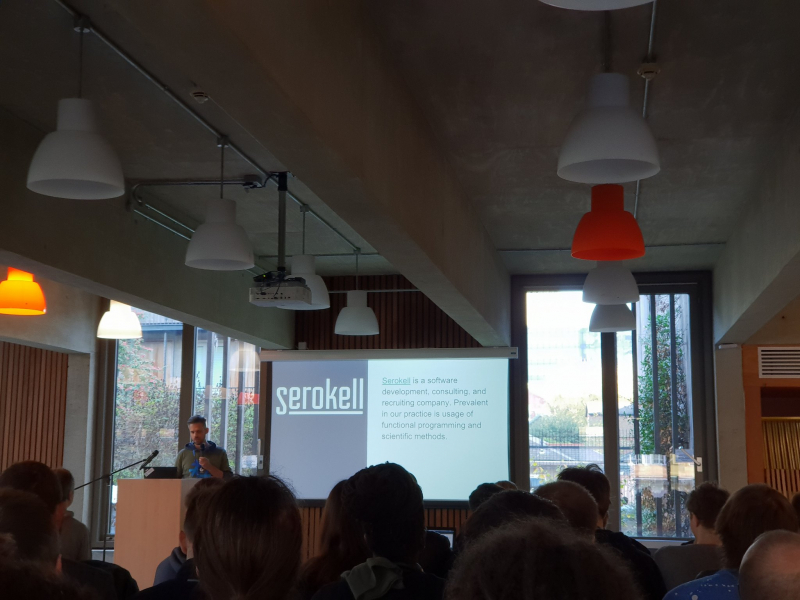
“Don’t think about what the industry expects of you”
You’re heading a company, teaching, going to obtain a PhD – how do you approach time management?
A good manager never has to do anything. In other words, you have to effectively delegate tasks and monitor their progress. If you’ve done it correctly, assembled a good team, you won’t have any work. Don’t think that you don’t have any time – just try and do something, and most likely you’ll find some.
What are you proud of professionally?
I’m alive.
Does it pertain to professional matters, though?
Why not. In strict professional terms, though, I don’t think that I’ve accomplished something great. I think that this is only the beginning; we’re developing. Now, for example, we’re writing a book about our experience as an international team that works without an office: there isn’t a lot of these examples out there, but all the while the trend is growing.
Can you, as an industry person, give some advice to students who are about to venture there?
Don’t look at the industry, develop your brains in general rather than overly concern yourself with what the market would demand from you. What I’m extremely grateful to my alma mater for is multifaceted learning. We had maths, physics, and tons of programming. Everything was very difficult, but it made the wheels turn in your head. Thanks to this, it was easier to work with real-life tasks because you got used to workloads, you’re capable of learning and doing a lot of work. I tested it on myself that it’s better to temper yourself with studies and complex subjects, to train your brain on this basis. And then you’ll find it easier to survive in the industry.
